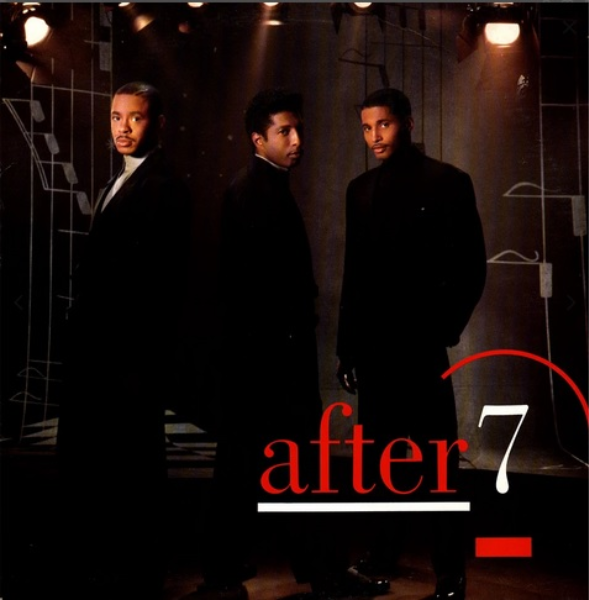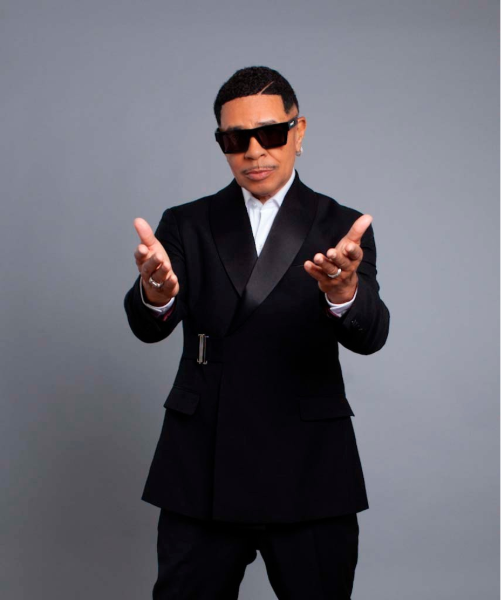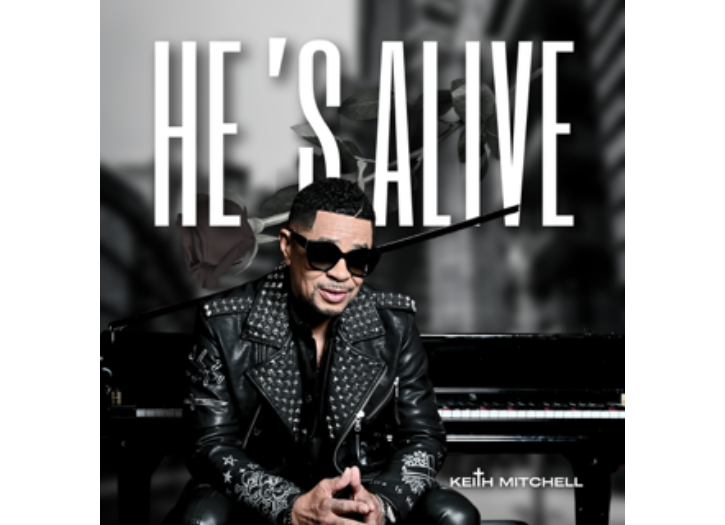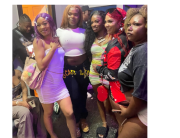After 7 is an American R&B group founded in 1987 by brothers Melvin and Kevon Edmonds, and their friend Keith Mitchell. The Edmonds brothers are the older siblings of pop/R&B singer-songwriter and record producer Kenneth “Babyface” Edmonds, who named the group and helped them get a record deal with Virgin Records in 1988. ‘After 7’ released their platinum-selling[3]self-titled debut album in 1989, which spawned three singles “Heat of the Moment“, “Ready or Not” and “Can’t Stop“. “Ready or Not” and “Can’t Stop” were No. 1 R&B hits and top 10 hits on the Billboard Hot 100. Their second album Takin’ My Time, released in 1992, also went platinum and contained the R&B hit medley “Baby, I’m for Real/Natural High“. After 7’s Gold-selling 1995 album Reflections was their last album before the group disbanded in 1997. The album included the R&B hit “‘Til You Do Me Right. Years later the group resumed touring with Jason Edmonds, son of Melvin Edmonds, replacing his father.[4] Melvin rejoined the group for their successful 2016 comeback album Timeless, which featured 3 adult R&B top 10 hits “Runnin’ Out”, “I Want You” and “Let Me Know“.[4][3]

Keith Mitchell, one of the founders of ‘After 7’ discusses the reason for his departure in this exclusive interview:
Q: What were some key milestones and moments that defined your career with such a legendary group as After 7?
Wow, that’s a huge question—and a powerful one. Honestly, our journey has been filled with a multitude of memorable milestones. One that immediately stands out is when our single “Ready or Not” hit number one—not only on the R&B chart but also on the Billboard. That was truly a breathless moment for me and the guys. Hearing our song on the radio was surreal, and to watch it rise alongside artists like the Mac Band, Sheena Easton, The Whispers, Bobby Brown, and Paula Abdul—it was an overwhelming validation. For the first time, we felt seen. We were relevant. We were part of R&B history.
Following that, “Can’t Stop” also rose to the top of the charts and went gold, as did “Ready or Not.” That success catapulted us into the spotlight, catching the attention of top promoters like Al Haymon. He booked us as the special guest on MC Hammer’s “You Can’t Touch This” tour. That was a game-changer. We went from playing small clubs to performing in front of arenas filled with 10,000–17,000 people. It sharpened us. We learned to eliminate mistakes on smaller stages so that when it was time to shine in front of massive audiences, we were ready.
That tour exposed us to new fans and solidified our presence. “Heat of the Moment” also climbed into the top 10, even crossing over to the Top 20 pop charts. We were fortunate to perform for large, diverseaudiences—and they embraced us.
Another incredible moment was being nominated for a Grammy as The Best Group or Duo. Even though we didn’t win, hearing our name announced alongside other top acts was humbling. It felt like the years of sacrifice and hard work were paying off. We were also nominated for an American Music Award, and later, winning the NAACP Image Award was especially significant. That award spoke to our character, our image, and our efforts to uplift Black women and present ourselves as intelligent, professional young Black men. That meant everything.
Later on, Whitney Houston personally selected After 7 as the opening act for her “I’m Your Baby Tonight” tour. We spent nearly three months touring the U.S. and Canada with her. Watching Whitney perform night after night—never missing a note—was awe-inspiring. Her talent was supernatural. Beyond the music, she welcomed us into her world. She invited us to her home in New Jersey, and we spent time with her and her family. That generosity, her spirit—it’s something I’ll never forget. Her passing left an irreplaceable void in music. We were blessed to have been part of her journey and history.
A major comeback moment came when we recorded the Timeless album after a 20-year break from the studio. We had continued touring, but to return with a fresh album that resonated with audiences—that was special. Melvin rejoined us, and we felt a spark reignite. Babyface wrote some incredible songs, and with his help, along with contributions from David and Jason Edmonds, we created something meaningful. It was rare—almost unheard of—for a group to come back like that after such a long hiatus. But it worked, and people embraced it.
What really defined us, though, was our ability to reproduce our sound live. No gimmicks, no tricks—just pure vocals. People believed the emotion in our songs because we believed it. Kevon had a soaring tenor, I added texture, warmth and blend, and together we created the After 7 sound—distinct and heartfelt.
Q: What were the biggest challenges you faced in After 7, and how did you overcome them?
One major challenge was not having the opportunity to showcase my voice as a lead vocalist. Kevon and I met at Indiana University, where we developed our sound and bond. We studied choreography, honed our vocals, and sang in various venues in the Midwest. Over time, we built a foundation. But when After 7 formed, I wasn’t initially given lead vocal opportunities. That didn’t really change until Daryl Simmons gave me a chance to sing a line on “Baby I’m For Real.” Even then, there were no discussions—it just happened that way.
There were times when I’d be asked to sing a line in the studio, but I’d be given just 15–20 minutes to nail it. If it didn’t work right away, the opportunity would pass. In actuality, being produced is a process. Producers guide you, help shape your voice, and develop your artistry. I wasn’t afforded that kind of development within the group. I understood that Babyface wanted to spotlight his brothers, but I still hoped there would be room for my voice.
Eventually, I became more involved behind the scenes. During the Whitney tour, I took over as road manager. We had been losing money on tours, paying crews, buses, and expenses—but not ourselves. When I managed the road logistics, we finally profited—about $24,000 after expenses. That felt like a real win, and it reminded me of the importance of understanding the business side of music. I studied business at IU, and I’ve always believed that if you treat music like a job, you deserve to be paid for it.
But challenges persisted. I was often seen as “the money guy” in the group, always focused on finances. And yes, I was. Because this was our livelihood. I left steady-paying ventures to pursue this career, and I needed to pay my bills. The priorities weren’t always aligned among us, and that created tension.

When I left the group the first time, I was running a barbecue restaurant in Atlanta—Smokehouse Ribs, one of the best in town. Kevon and Melvin visited me there and asked to “go for a walk.” That’s when they let me know I was being replaced. They said they needed someone with a more prominent voice, like a Boyz II Men-style vocalist. It was a painful moment. I never got the opportunity to prove what I could do vocally, and then I walked away from the group, and gave back my 33 1/3% ownership in the shared company.
But I always believed that God opened the door for After 7—not any one person. It was a divine opportunity that included all of us. And although I walked away, I knew God would still guide my steps. He was the only voice that mattered and I needed to walk by faith with Him.
As part of God’s divine plan, Kevon eventually extended an invitation for me to return to the group. When I eventually returned, I wasn’t treated financially as a founding member. I helped build the brand! It was my face, my voice, my intelligence, my heart, my commitment for 30 plus years! Yet, I was paid like a roadie or a musician or even a sound tech, but not like a original member. Over 20 years, my pay never increased one penny. I was paid $1500 a show and if there were 2 shows in a night that did not double the pay to make a total of 3K. No Kevon’s math only gave me an additional $750 for that second show. I don’t know anyone who would accept that—working decades without a raise, paying for their own wardrobe, and sometimes travel expenses. Still, I remained committed. My loyalty never wavered. But eventually, the imbalance took its toll.
Near the end, my role on stage diminished. They removed my voice from the monitor speakers—first from the floor wedges, then from the in-ear monitors. That made it nearly impossible to hear myself and perform well. Everyone else on stage had proper sound, but I didn’t. It felt intentional, and it made performing frustrating and disheartening. No artist should be deprived of the tools they need to succeed on stage. It was clear I brought the entertainment factor to the stage. As the group’s strongest dancer, the others often looked to me for direction during live shows. Ironically, while my physical presence was front and center, my vocal potential was often sidelined. Thankfully, moments like my acapella performance on The Arsenio Hall Show gave me the rare opportunity to let my voice speak for itself—and I delivered.
Despite all of these issues, I stayed loyal for decades. But over time, the value placed on my presence in the group eroded. When that happens—when you’re treated as replaceable, excluded from creative decisions, and underpaid—it becomes clear that it was time to exit stage left.
I’m not bitter. There was a time I was disappointed but I’ve come to understand that God brings people and situations into your life for a reason, a season, or a lifetime. After 7 was a powerful season in my life—one I will always treasure. But that season has come to a close because of one man’s intentional behavior.However I realize that it was all part of God’s plan for me to finally step away to pursue the work of sharing the Gospel.
Now, I’m doing my own thing and my own way with God at the helm. And I’m grateful for everything I’ve learned, endured, and achieved. I’m still singing back-up but this time I am backing up Jesus and I don’t mind being outshined.

How did you come to terms with moving on from After 7?
Moving on was a spiritual and emotional journey. I knew deep in my heart that God had a purpose for my life beyond what I had experienced. Music has been with me since I was seven, and I believe that same divine hand guided me as I transitioned to worship through music. I’m walking in that purpose now—grateful, fulfilled, and blessed to be serving Him with the gift He gave me. My new work, ‘Food for Your Life,’ is a reflection of that purpose. I hope listeners can feast on the wisdom of the Gospel that my music aims to share with everyone.
How did the group’s dynamics evolve over the years?
The dynamics of After 7 changed significantly over time. Initially, it was the beautiful balance between Kevon and Melvin’s vocals—the yin and yang that gave After 7 its signature sound. I added a breathy, youthful blend that became part of the fabric. Over the years, we brought in others like Jason Edmonds and Danny McClain, but Kevon always overlooked any talent I could have offered the group. Each person brought something unique, but there was always a challenge in preserving the original identity of the group.
What were the specific factors that led you to leave After 7?
There were several key reasons. Over the years, I was gradually marginalized. My on-stage duties diminished, and I wasn’t appreciated for my contributions to the brand—vocally or visually. I wasn’t paid for rehearsals, per diems, or wardrobe. Despite the group’s earnings increasing over time, my compensation never did. I stayed for as long as I did because I’m loyal by nature and believed in the group, and that Kevon, got me! Got me never showed up! But eventually, I had to step away from an environment that no longer valued me fairly.
How do you feel about After 7’s future without you?
I’ve watched a few performances since I left, and while there are still three men wearing matching outfits—actually the same outfits used for shows over the past seven years—it barely resembles the After 7 I helped build. The keys have been lowered to accommodate tired vocals, the choreography has been watered down to a two-step, and the lineup for band members, background singers, and lead vocalists shifts so often it’s hard to tell if it’s a group or a rotating cast call. Whatever it is, it’s using the name—but not carrying the legacy of After 7.
When one of the original three is gone, the balance shifts. We once carried a certain excellence, a polished presentation, and a bond that fans recognized. Without that, something feels lost. But I am wishing the rotating group well, and I’m focused on sharing my voice and spirit through gospel music. ‘Food for Your Life’ is my offering to the world now—and it’s deeply fulfilling to have completed the album.
What would you like to say to the fans who have supported you and After 7 over the years?
To the fans who’ve supported us since 1989—from ‘Heat of the Moment’ to our recent performances—thank you. Your love, your energy, your belief in us have meant everything. You embraced our sound, our look, and our sincerity. I owe so much to you, and I carry your support into this next chapter of my life. We couldn’t have done it without you. Now, as I continue this journey with just God as the leader, I hope you’ll continue to walk with us. The best is yet to come!”







Add Comment
You must be logged in to post a comment.